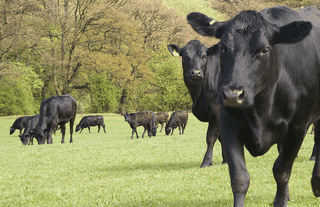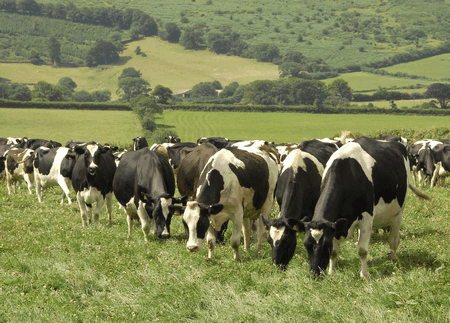Beef farmers diversify to meet demand for quality, locally sourced beef

The rise in demand for locally sourced, quality meat has lead a Devonshire couple down the road of diversification in their quest to meet consumer demands.
About 10 years ago Phil and Sue Friend, who farm 100 North Devon and Simmental cross sucklers in Okehampton, Devon, saw increasing demands from locals for beef for the freezer, so ended up gathering enough orders to kill one bullock.
“Demand made us realise there was a gap in the market for locally produced-beef that needed filling,” says Mr Friend, who is the fourth generation of Friends to farm at Wadland Barton Farm, Ashbury.
“As more orders started coming in we picked up a second-hand cooling room, and refurbished a room for cutting and processing meat. It was a low key affair with very little investment, but it worked well.”

Five years ago, as orders picked up, Mr Friend applied for a grant from the Rural Development Agency, who were keen to promote farm diversification.
“The new cutting room made it possible to process more meat, which allowed us to sell the produce at farmers’ markets, such as Okehampton. Now we have regular custom at the market and sell one finished beef animal and six lambs a month. Bulls are then sold at 14-15 months old, after being finished on barley, to St Merryn Foods, Bodmin.”
Wanting to make better use of the fore-quarter as only the hind quarter was being used, Mr Friend decided to make home-made burgers and sausages. And visiting local agricultural and equestrian shows opened his eyes to an opportunity for a catering van.
“There are many smaller local shows and it was from these we saw another opening in the market to set up a catering van. We already had the cutting and cooling room in place and were making burgers and sausages to sell already, so this seemed like a logical progression.”
People appreciate quality food and knowing exactly where and how it is produced, says Mrs Friend. “Initially in 2000 we purchased a second-hand catering van to test the market, but as custom increased we used a small amount of the remaining RDA grant to buy a new unit.”

The majority of the food sold on the van is locally sourced, says Mrs Friend. “The bacon is from Cornwall, cheese and eggs from Devon, and bread from Okehampton. We also sell home-made cakes made by myself and my mother-in-law and locally-produced ice-cream. Even the spring water is local too.
“For two thirds of the time the catering van is at equestrian events, but we also go to farm sales, local carnivals and a few agricultural shows. And although it is hard work, it is a social job.”
Mrs Friend says the catering unit is a family run event, with their two daughters and son also having food hygiene certificates so they can help out. “We aim for two events a weekend for six months of the year. However, due to the weather a few shows have been cancelled this year.”
Mr Friend says it is great being able to dictate their own profit margin. “The van is a lot more profitable than the meat side and not being subject to market prices and being able to determine your own profit margin is a novelty,” he adds.
The Friends’ catering unit will be at this year’s South West Beef Event, where visitors can sample their range of produce. And on the day before they host the event’s farm walk.
The farm walk will take place at 2pm on the 17 September, when visitors will be shown around the farm as well as demonstrations on cleaning livestock housing and several talks.
“We are a traditional mixed farm with beef, sheep and a bit of arable and look forward to welcoming people to look around in September,” adds Mrs Friend.
